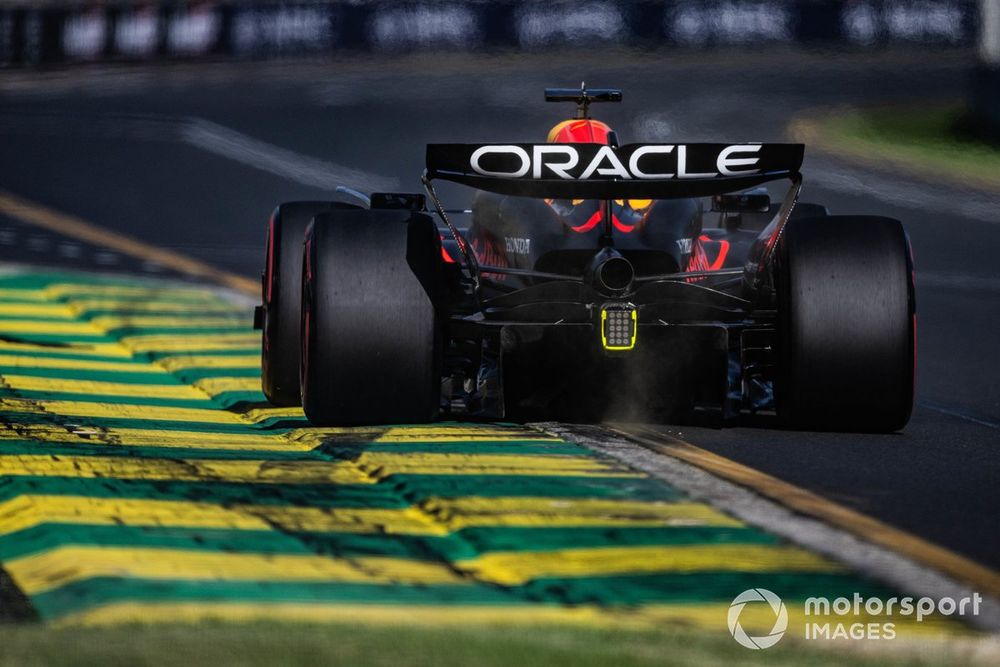In 2026, F1 switches to revised power unit regulations which do away with the expensive and complicated MGU-H system and instead put a bigger emphasis on electric power provided by the MGU-K.
F1 will also adopt sustainable fuels for the turbocharged V6 engine, which will remain in place as part of a projected 50/50 split between electric and internal combustion power.
For 2026, Red Bull and sister team RB will switch from Honda engines to power units developed by Red Bull Powertrains, built at Red Bull’s Milton Keynes campus with input from partner Ford.
For Red Bull, switching to an in-house engine presents a huge step into the unknown that team principal Christian Horner has called the team’s “biggest challenge” in its 20-year history.
But amid suggestions that the engine project is behind that of its peers and could be a reason for Verstappen to consider his options, the Dutchman says there is “no need to panic” about it just yet.
“I mean, if I have to speculate about everything… I might be worried if I’m still alive tomorrow, right?,” he shrugged. “So, I don’t really worry about that too much.
“Of course, I am in close contact with Christian about that and the people working there. Everyone’s working flat out, so there is no need to panic about that. It’s still not 2026.”
Max Verstappen, Red Bull Racing RB20
Photo by: Simon Galloway / Motorsport Images
Verstappen did acknowledge Red Bull Powertrains faces a “very big task” to take on the existing manufacturers, which are also joined by newcomer Audi in 2026.
“We know that it is a very big task, we don’t take that lightly. And of course, with so many well-established engine manufacturers, we also don’t think it’s going to be easy to beat them,” he added.
“But we have a lot of good people working on the project and we’re very excited about it. So time will tell, of course, where it’s going to be.”
Last summer, Horner urged the FIA to revisit the equal 50/50 split in hybrid power output and increase the ratio of combustion power amid fears over the quality of the racing. Mercedes chief Toto Wolff suggested it was a sign of Red Bull fearing being behind the curve instead.
With the chassis rules for 2026 yet to be finalised, work is ongoing to come up with lighter and lower-drag cars to mitigate concerns of cars slowing down dramatically on the straights as they run out of battery power.
The aim is to make the 2026 generation of cars shorter, narrower and 40kg…
Click Here to Read the Full Original Article at Motorsport.com – Formula 1 – Stories…

